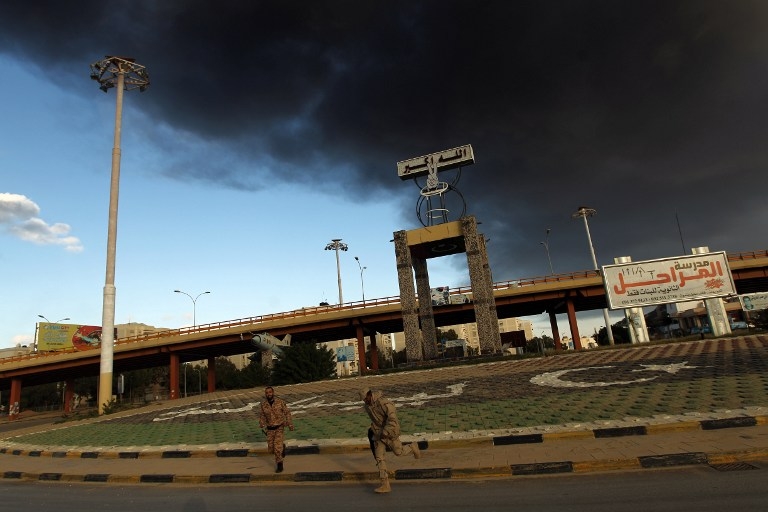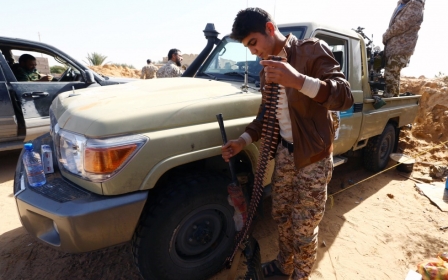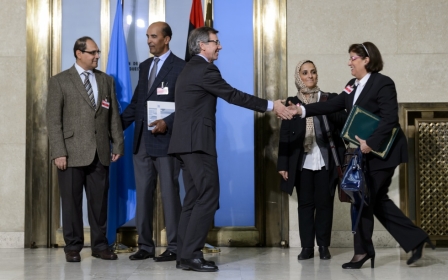Libyan official sounds alarm about IS as Benghazi explosion kills 2

A car bomb exploded in Benghazi early on Friday killing at least two people, as well as the driver, and wounding an estimated 20 others, according to reports.
The car was headed towards an army base and ammunitions store, which military officials believed was the intended target, but exploded prematurely killing a man and a child, Reuters reported.
The explosion came hours after heavy fighting between pro-government forces and armed militias over the city's port and the neighbourhing Suq al-Hout district.
Former general Khalifa Haftar's forces and the Libyan National Army say they have taken control of the port and the neighbourhood, the Libyan Herald reported, but cautioned that the situation on the ground was not fully clear.
This week has seen renewed violence in several corners of Libya, raising concerns, in particular, about the country's oil sector and warnings from one Libyan official about the growing threat of the Islamic State group to his country.
On the heels of an attack at the luxury Corinithia Hotel in Tripoli last week by a group that says it is affiliated to IS, the same group attacked the Mubruk oil field, co-owned by Total and the National Oil Company, killing four people.
In the past three months, Libyan oil production has fallen from almost 900,000 barrels per day to 325,000 barrels per day, largely because oil fields have been taken over by armed groups or shutdown as a result of security concerns, according to a National Oil Company official quoted by the Wall Street Journal on Friday.
Aref Ali Nayed, Libya's ambassador to the United Arab Emirates and an adviser to Prime Minister Abdullah al-Thani, sounded alarms during a trip to the US on Thursday, warning that a new international approach is needed to tackle IS.
"It's not possible to fight ISIS in Iraq and Syria without also addressing the Libyan component," he said.
The United Nations has blacklisted one of Libya's militant groups, Ansar al-Sharia, for its ties to IS, but Nayed said the militias are adept at "rebranding" to maintain and expand their links with IS.
Nayed estimates that IS is active in seven Libyan cities and has carried out attacks in a dozen areas.
Nayed raised concerns about an influx of foreign fighters into Libya - from Yemen, Tunisia, Algeria and from Chechnya - whom he said were recruited by IS.
He warned that Libya could be used as a base for attacks in Europe - "only an hour away" by plane.
"We see a distinct absence of strategy to address ISIS globally," said Nayed. "It is the most existential threat to my country."
Libya has been wracked by conflict for the past four years, with rival governments and powerful militias battling for control of key cities and the country's oil riches.
New MEE newsletter: Jerusalem Dispatch
Sign up to get the latest insights and analysis on Israel-Palestine, alongside Turkey Unpacked and other MEE newsletters
Middle East Eye delivers independent and unrivalled coverage and analysis of the Middle East, North Africa and beyond. To learn more about republishing this content and the associated fees, please fill out this form. More about MEE can be found here.




